A vehicle's oil filter plays a vital role in keeping the engine clean and free of debris. However, if it becomes clogged, can this lead to an engine knock? Let's take a look to if this is really the case.
A clogged oil filter can cause engine knock because it restricts the flow of oil to the engine. This can lead to metal-to-metal contact between the pistons and the cylinders, which can create a knocking sound. Additionally, a clogged oil filter can also cause the engine to overheat because it prevents the oil from cooling the engine.
If you notice engine knock, it's important to have it checked out by a mechanic as soon as possible. In this article, we will discuss why a clogged oil filter can cause permanent damage to your engine. In addition, we will answer other frequently asked questions about the importance of oil filters and how often they should be replaced.
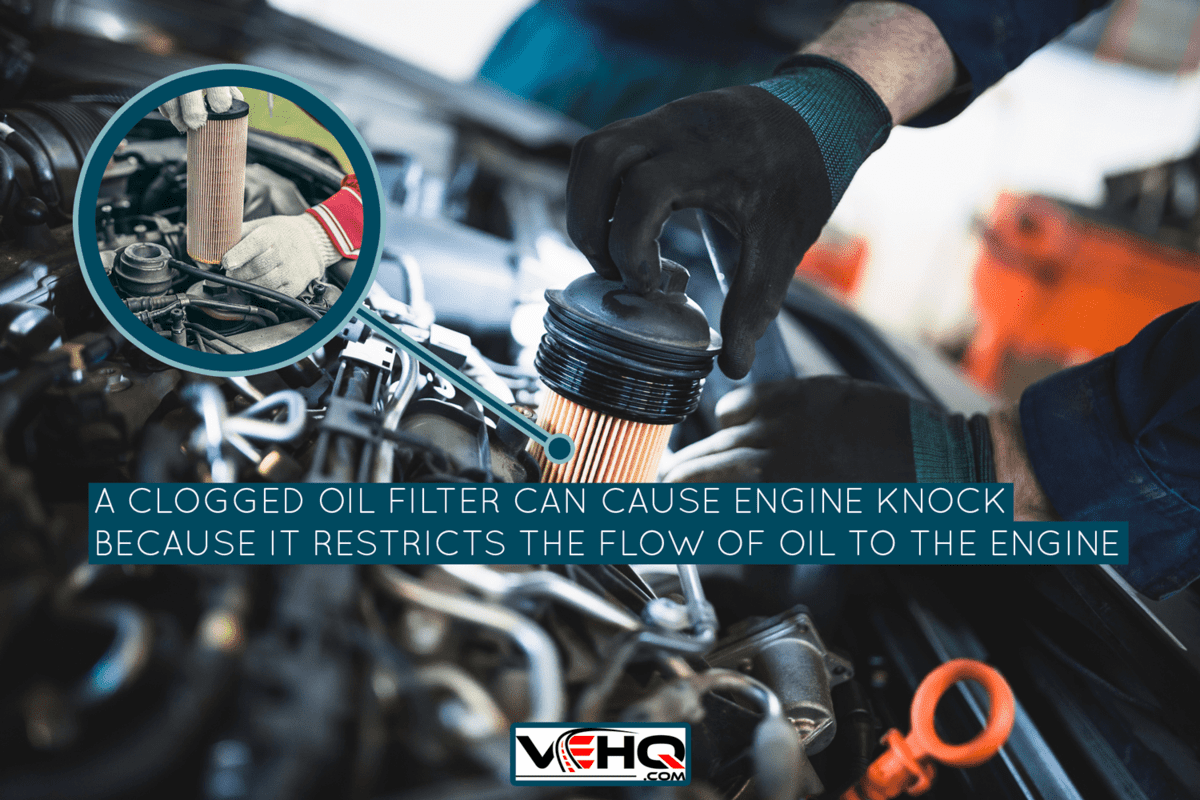
Why Does A Clogged Oil Filter Cause Engine Knock?
The job of an oil filter is to clean the oil before it circulates through the engine. The oil filter catches and holds contaminants such as dirt, metal shavings, and carbon deposits that can damage engine parts. Over time, these contaminants can build up and cause the filter to become clogged.
If the oil filter isn't changed on time or becomes clogged, it can restrict the flow of oil to the engine. This is a problem because the engine needs a constant supply of oil to lubricate the moving parts and prevent metal-to-metal contact.
When the flow of oil is restricted, the engine can overheat or cause a knocking sound.
Engine knock is a knocking or pinging sound that occurs when the air-fuel mixture in the cylinders detonates prematurely. This can cause damage to the pistons and cylinders over time. Additionally, engine knocking can also lead to engine failure.
If you notice engine knock, it's important to take your vehicle to a mechanic as soon as possible. The warning signs of engine knock include a knocking or pinging sound when the engine is idling, a loss of power, and decreased fuel economy.
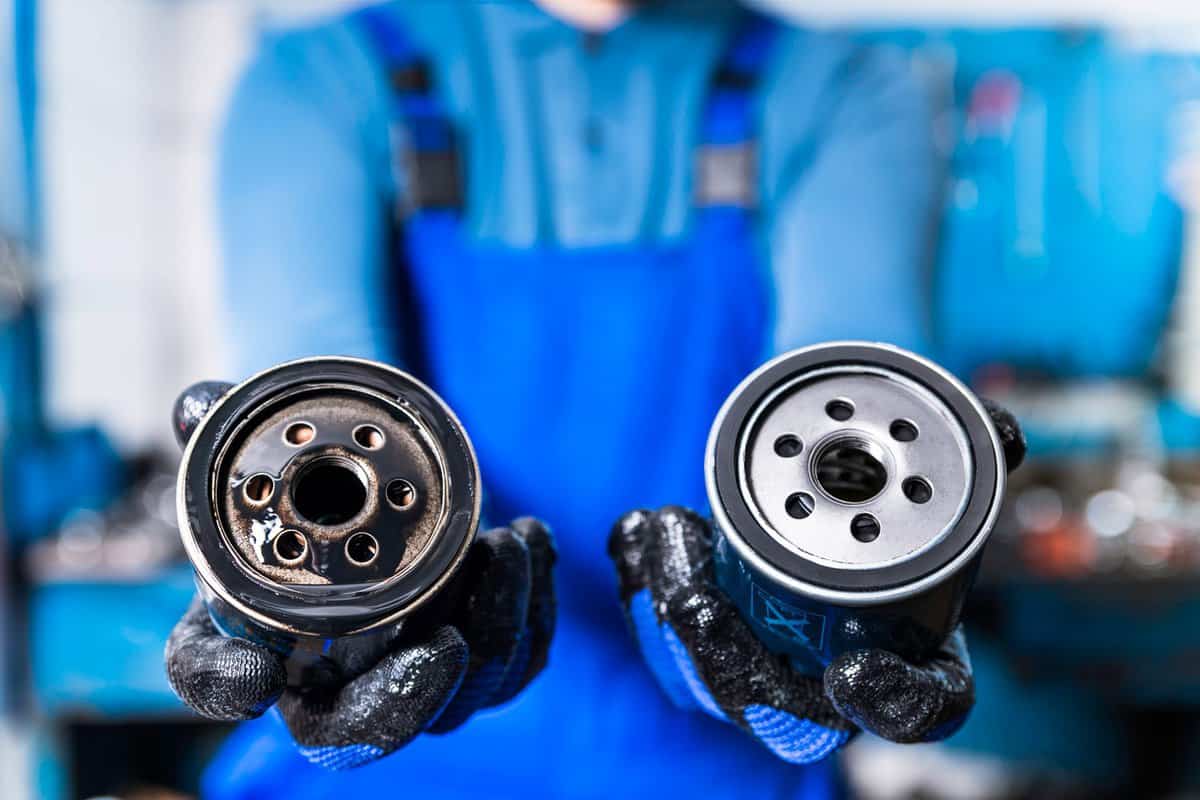
How Can I Prevent My Oil Filter From Becoming Clogged?
One of the best ways to prevent your oil filter from becoming clogged is to change it on time. Depending on your vehicle, you should change the oil filter every time you get an oil change.
Additionally, you can also extend the life of your oil filter by using higher-quality oil. Synthetic oils are known to be more durable and have a longer lifespan than conventional oils. As a result, they can help prevent your oil filter from becoming clogged as quickly.
If you notice that your oil filter is becoming clogged more frequently, it's important to take your vehicle to a mechanic. They can inspect the engine and diagnose any underlying problems that may be causing the filter to become clogged.
Can A Clogged Oil Filter Cause Rattling Noise?
In addition to engine knock, a clogged oil filter can also cause a rattling noise. This is because the restricted flow of oil can cause the parts in the engine to rub against each other.
If you have just bought the vehicle from a private party, the rattling noise could be due to a poorly installed aftermarket oil filter. It is always advisable to take the vehicle to an authorized service center for a routine checkup and get the oil filter replaced if necessary.
Also, speak to the previous owner and find out if they had any similar issues with the vehicle. If they did, ask for receipts related to oil changes and other maintenance performed on the car. This will give you a better idea of when the oil filter was last replaced and how often it needs to be changed.
How Do You Fix Engine Knocking?
If you are troubleshooting engine knock and you ruled out the oil filter, it is most likely due to a fuel issue. The first thing you should do is check the octane rating of the fuel you are using. If it is lower than what is recommended for your vehicle, switch to a higher-octane fuel.
If you are still experiencing engine knock after switching to a higher-octane fuel, the problem could be due to deposits on the cylinder walls. These deposits can build up over time and cause the engine to knock. The best way to remove these deposits is to use a cleaner designed for this purpose.
You should also check the spark plugs. The reason for this is that engine knock can be caused by spark plug misfiring. If the spark plugs are fouled or damaged, they will need to be replaced.
Finally, if you are still experiencing engine knock, it could be due to a problem with the pistons or valves. In this case, the best course of action would be to take the vehicle to a mechanic for further diagnosis.
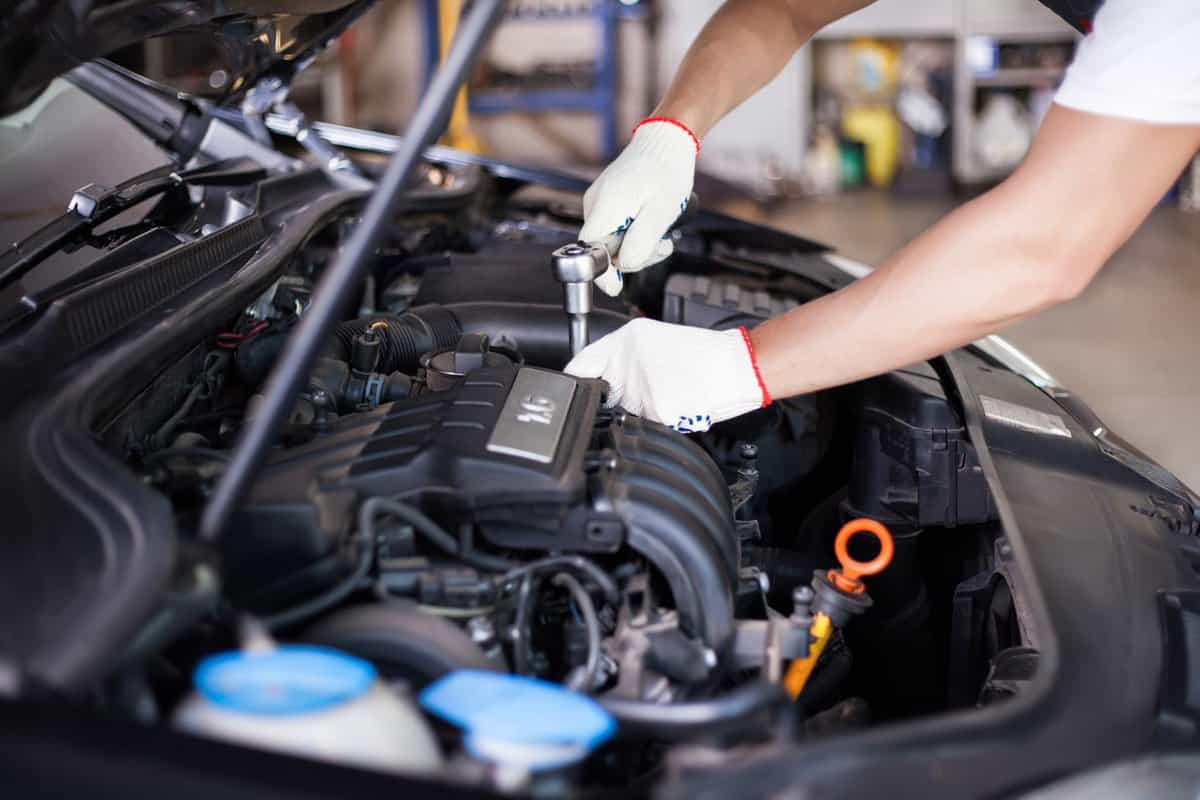
Can Low Oil Cause Engine Knock?
In addition to a clogged oil filter, low oil can also cause engine knock. This is because the oil is responsible for lubricating the moving parts in the engine. When there is not enough oil, these parts can start to rub against each other and cause knocking noises.
If you notice that your vehicle is low on oil, it's important to add more as soon as possible. You should also check for any leaks and have them fixed as soon as possible.
Keep in mind that refilling oil isn't a replacement for an oil change. You still need to make sure you get the oil changed on time in order to prevent engine knock and other problems.
In the case that you just recently changed your oil and you are already low, there is likely a leak somewhere. Add oil to your engine, and then check for leaks.
Let the vehicle run for a few minutes, and then check the level again. If it is still low, there may be a problem with the oil pump or gasket. In this case, it's best to take the vehicle to a mechanic for further diagnosis.
What Oil Filter Should You Use For Your Vehicle?
The type of oil filter you should use for your vehicle depends on the make and model. You can usually find this information in the owner's manual.
If you are unsure of which oil filter to use, you can always consult a mechanic. They will be able to recommend the best oil filter for your specific vehicle.
It's best to use an oil filter that is designed for your vehicle. This way, you can be sure it will fit properly and won't cause any problems.
If you are installing the oil filter yourself, be sure to follow the instructions carefully. This will help to ensure that it is installed correctly and won't cause any leaks.
It's easy to overtighten an oil filter, so be sure to hand-tighten it until it is snug. Then, use an oil filter wrench to give it an extra quarter turn. This will help to ensure that it is installed correctly and won't come loose.
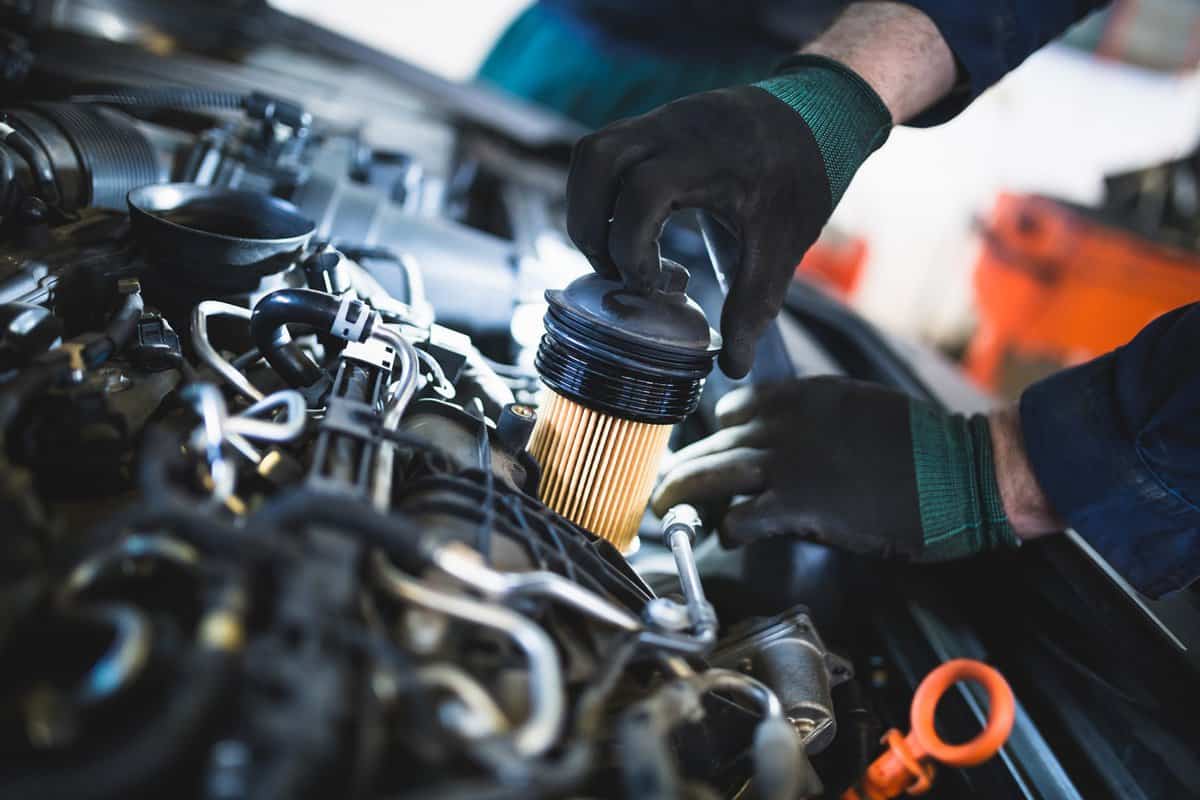
Can I Use The Same Oil Filter Twice?
It's not recommended to use the same oil filter more than once. This is because the oil filter can become clogged with dirt and debris over time.
If you reuse an oil filter, it won't be as effective at filtering out the contaminants in your oil. This can lead to engine knock and other problems. It's best to use a new oil filter each time you change your oil. This way, you can be sure that your engine is getting the cleanest possible oil.
If you are short on time or money, you can clean and reuse an oil filter. However, you could be looking at higher repair bills down the road if you don't change it as often as you should.
Are Synthetic Oil Filters Different?
Like synthetic oil, synthetic oil filters are designed to last longer and provide better protection for your engine.
Synthetic oil filters can filter out smaller particles than regular oil filters. This means they can do a better job of protecting your engine from wear and tear.
Synthetic oil filters also tend to have a higher lifespan, meaning they can go longer between changes.
If you are using synthetic oil in your vehicle, it's a good idea to use a synthetic oil filter. This way, you can be sure that your engine is getting the best possible protection.
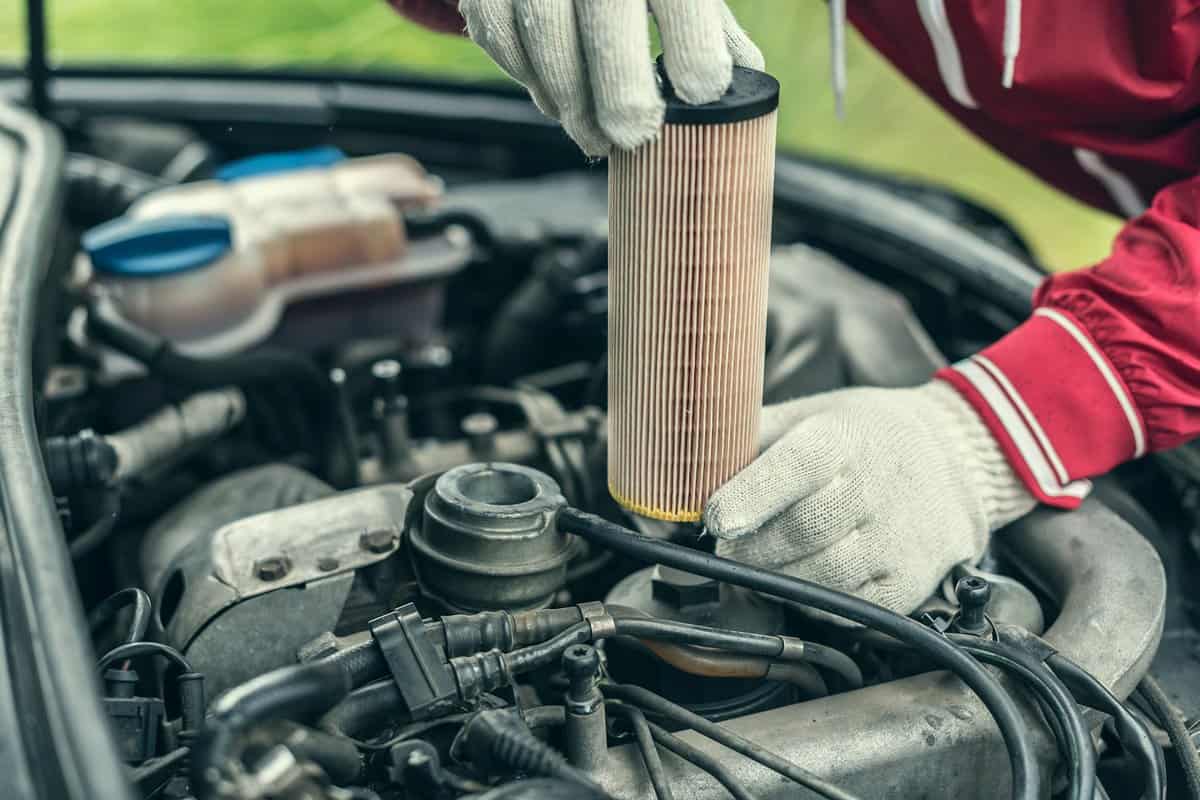
Final Thoughts
Overall, engine knock is a serious problem that can lead to expensive repairs. Check your oil level regularly and top off as needed. Be sure to also get your oil and oil filter changed on time in order to prevent engine knock and other problems.
Made it to the end? Here are other articles you might find helpful:
